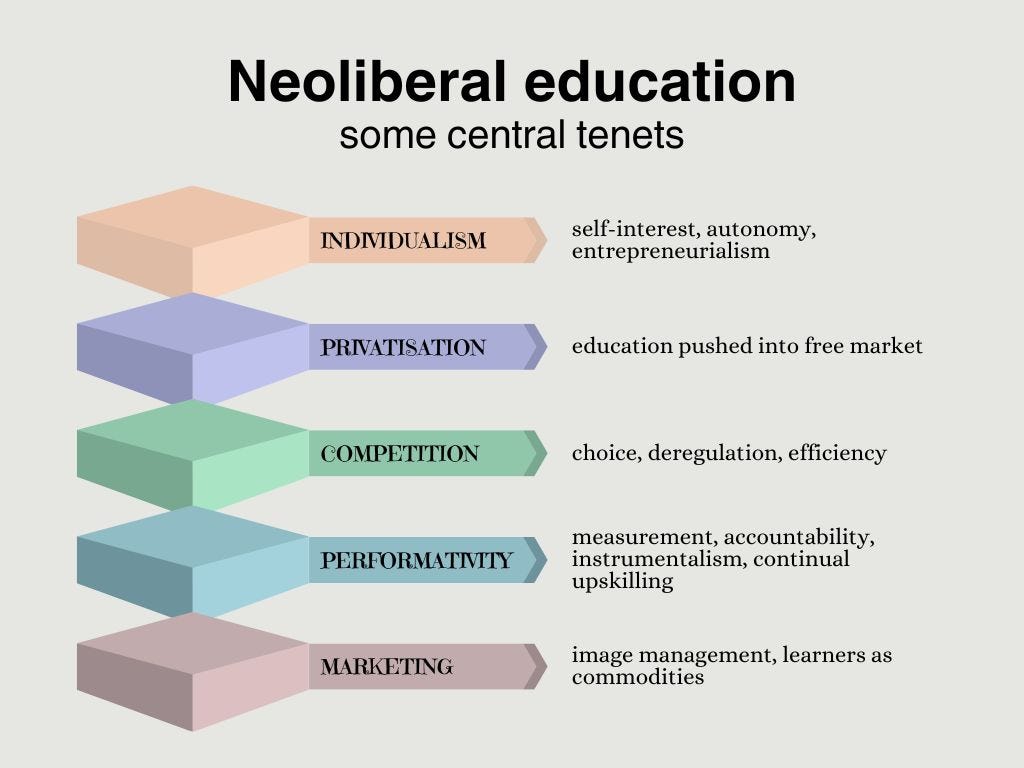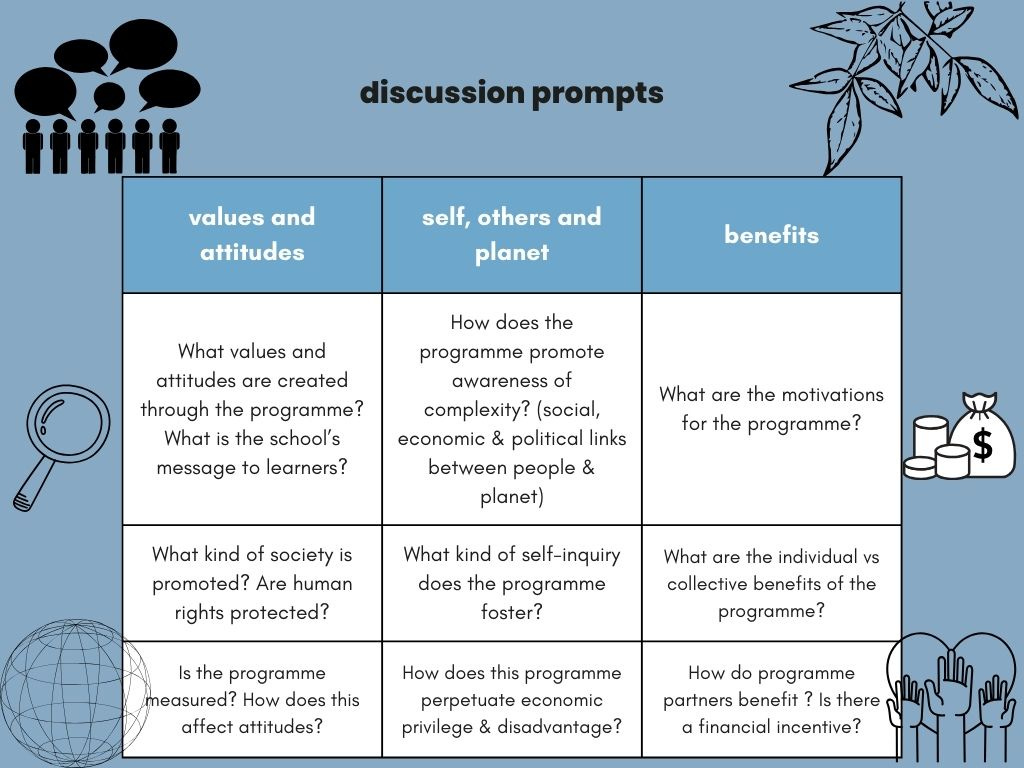Neoliberalism and education
When I first stepped into the politics lecture theatre as an undergraduate in the late 1980s in Australia, I naively thought that everyone understood the collective social benefits of good public education systems. I slowly became aware of the surging neoliberal trend and identified my complicity in it. Private education was booming; public schools were losing funding and university fees were introduced. This was against a backdrop of globalisation and policies to open the free market. Education was getting caught up in global market competition.
Neoliberalism was propelled during the 1980s by the policies of Margaret Thatcher in the UK and Ronald Reagan in the USA. It is still our current dominant model. Education, a staple ‘good’ for society (in the economic and moral sense of the word) has been made less equitable. If public services are made less equitable, then redistribution is required. However, redistribution is an ideological debate. Neoliberal politicians said that some people use schools more than others, so not everyone should pay for them.
Then there is the efficiency issue. Government services and their bureaucracies were labelled inefficient and neoliberal politicians argued that the social benefits were not worth it. However, governments and private enterprise usually have different objectives and measures, so comparisons are problematic. Along with cost-cutting of public education, neoliberal policies brought a lot of government control involving measurement and accountabilities in educational policies.
The cost-benefit analysis of equitable education is complicated because education has private and public benefits. It might cost more to provide, but are we happy to forgo a well-educated populace? What happens if we have a population that doesn’t equally receive the necessary education to participate fully in society and civic life? What lessons from civil rights history have we learnt about this? Neoliberalism assumes a level playing field, but this isn’t the case. There are always people with more advantage and power than others.
If private education providers only respond to the feedback of its customers, then the education delivered will be tailored to the self-interested desires of those customers. People want to choose where and how their children are educated. That is hard to argue against as we think about the different needs of families and young people. Sometimes monopolies get too lax with quality. However, when the market dictates the why and how of education in a neoliberal environment, things can get really skewed and not for the common good. The overall impact of neoliberal education policies and economic development has been increasingly enormous inequality.
Neoliberal global citizenship education
The neoliberal version of global citizenship education interprets education as a private good, and the citizen as an individualistic consumer/entrepreneur in the free market. Global citizenship in this neoliberal context is also used as a marketing strategy to promote corporations including schools and individuals. It promotes uncritical use of educational businesses and technologies. While there is much marketing about action to change the world by neoliberal global citizenship education, in fact, it will not.
Action for neoliberal global citizenship education is guided by building students’ resumés, preparing them to compete in the global economy. The focus of actions such as service learning then becomes the student rather than the communities that are served. Neoliberal global citizenship education is frequently framed as a competency and can be presented as an award, or a certificate that maximises the student’s future opportunities and employability. Neoliberal responses to global citizenship are not perceived as ongoing processes but rather a measurable finite product.
This discussion prompt table can be used to think deeply about a global citizenship education programme or action that is up for consideration in your educational institution. It highlights some of the pitfalls of neoliberal global citizenship education and opportunities to challenge them. I have devised this prompt table to be used in school classrooms, in school staff rooms or in undergraduate programmes. Please check out the recommended further reading list below to learn more about neoliberal educational agendas and global citizenship.
Further Reading
Apple, M with Gandin, L.A., Liu, S, Meshulam, A. & Schirmer, E. (2018). The Struggle for Democracy in Education: Lessons from social realities. Routledge.
Ball, S., Junemann, C. & Santori, D. (2017). Edu.net: Globalisation and Education Policy Mobility. Routledge.
Bosio, E. (Ed.). (2021). Conversations on Global Citizenship Education: Perspectives on Research, Teaching, and Learning in Higher Education. Routledge
Jones, B. (2022). Educating the Neoliberal Whole Child: A genealogical approach. Routledge.
Sant, E., Davies, I., Pashby, K. & Shultz, L. (2018). Global Citizenship Education: A Critical introduction to key concepts and debates. Bloomsbury.
Starr, K. (2019). Education Policy, Neoliberalism and Leadership Practice: A critical analysis. Routledge.
Torres, C.A. (2017). Theoretical and Empirical Foundations of Critical Global Citizenship Education. Routledge.







Hi Caroline,
A very insightful article about the neoliberalist approach to global citizenship education. Will you be writing about other approaches such as critical/radical GCE?
Looking forward to your next post!